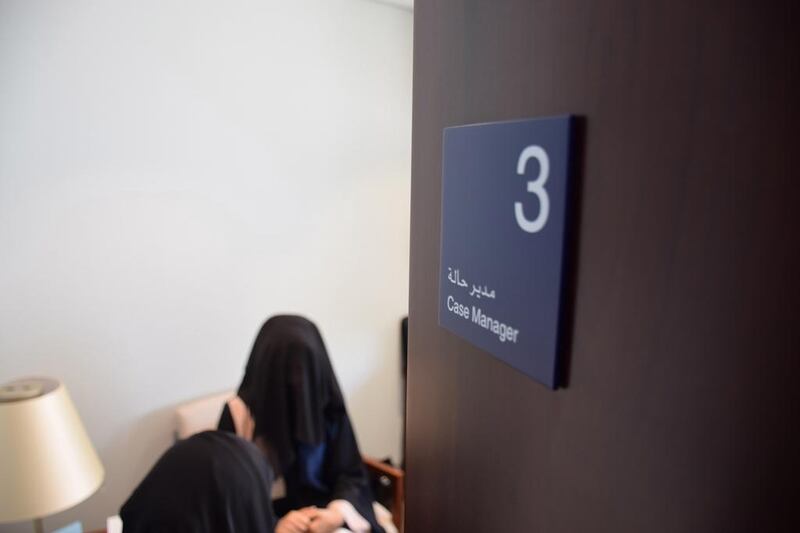DUBAI // In a quiet area of the emirate, in low-rise buildings and villas, victims of abuse and trafficking are given a fresh start on their own terms.
“We tell them, ‘yes, you are a victim but you are not only a victim, you are also a survivor’,” said Amina Hussain bin Hammad, a counsellor at the Dubai Foundation for Women and Children.
The women had suffered physical and sexual abuse, domestic violence and human trafficking.
“Abused women who have no place to stay – women who were forced to leave their houses or kicked out of their homes – are welcomed and served in the foundation’s shelter,” said Afra Al Basti, the foundation’s director general.
“Understanding the dynamics of domestic violence helps us to understand the psychology of battered women and then improve our services for them.”
The women sign a confidentiality agreement that safeguards their privacy and ensures their anonymity.
It can take the counsellors days to get the women to trust them and talk about the abuse they endured.
“We do not put borders between us and them and never force them to speak,” said Ms bin Hammad said. “We are not people who just want to listen to their story, we are therapists who can help.
“The clients’ consent of confidentiality is what helps us to get their trust, especially with victims of human trafficking.
“In some cases we have to be so careful in even the way we look at them, speak to them and the words we use.”
Managing the victims’ fears is key to helping them, as most developed post-traumatic stress disorder from their experience.
“There is panic, depression and flashbacks where they imagine the incidents again and again,” said Ms bin Hammad.
Counsellors visit the homes of the victims, hospitals and schools to gain information to help the women, and they often seek out the support of the police.
Some victims visit the foundation a few hours a day for legal guidance, psychological counselling and family counselling sessions.
The foundation has helped women subjected to verbal, emotional, physical, neglect or financial abuse by their husbands, fathers, stepfathers, mothers or brothers.
The foundation’s shelter is open to women of all nationalities. Last year, 935 of the 3,461 calls to the foundation’s helpline involved requests for help and advice.
Between July and September this year, the foundation handled 108 cases of violence against women and one case of trafficking. It housed 28 women and has five long-term residents.
For cases of human trafficking, the Dubai Police often warned that runaway maids were lured by criminals with promises of higher pay but were then coerced into prostitution.
“In some cases, the emotional impact is more than what they have suffered physically, it affects them mentally,” said Hamda Ahmed, a case manager at the foundation.
“In every session we tell them they are not alone, that there are other women around to listen to them. We keep working until they feel completely safe.”
After having learnt skills at the foundation, the victims are free to reunite with their families or are given help to find jobs.
“The main objective for the foundation over the next year is to decrease the number of cases of domestic violence, human trafficking and child abuse victims,” said Ms Al Basti.
“It is important to incorporate society in supporting women and stand against the violence.”
rtalwar@thenational.ae






